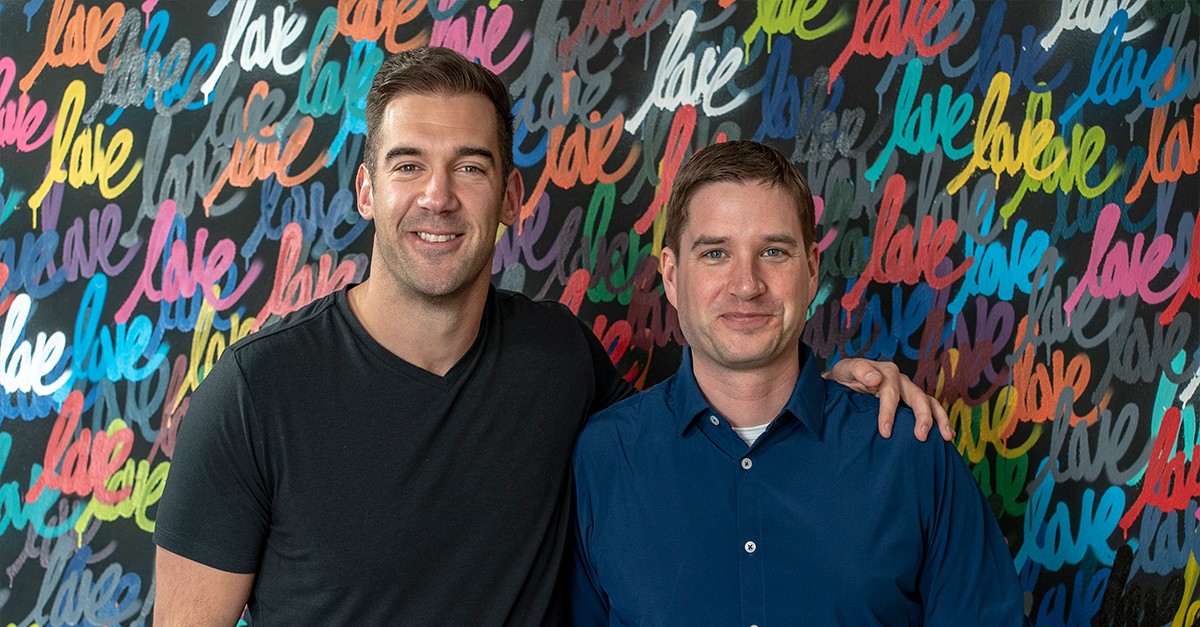How much time do you spend on your phone every day?
Statistics show us that most people spend about 50 minutes every day on Facebook or other social media sites like Twitter and Instagram. As a culture, we’re constantly hungry for the next “like,” the next retweet, the next comment. Our technology is like processed food — it tastes sugary and sweet in the moment, but in the long run, it’s terrible for our ability to grow, perform, and succeed.
But that addiction can have some pretty serious consequences. We experience this constant flow of information and stimulus, and as a result, we don’t know how to be alone with our thoughts. We forget how to engage in authentic relationships with other people. We lose our ability to focus and be creative.
It’s time for a digital detox.
My guest today famously has never had a social media account. His name is Cal Newport, and he’s an expert on digital media and how it affects us. He’s in the studio with me today to share some of his research about how our phones affect us. He’s also bringing the wisdom to teach us how to detox from our addiction to social media and learn how to be more focused, intentional, and confident in every area of our lives.
In our interview, Cal and I discuss some specifics of our addiction to our phones. We talk about the power of actually turning off your phone and being alone with your thoughts. Cal even gives us a 30-day detox plan we can follow to reevaluate our relationships with our phones and turn off the digital content that turns out to be more harmful than helpful.
And for you business owners and entrepreneurs who use social media to reach your audience and grow your impact — don’t worry, Cal’s got some excellent advice for you too! He’s going to help us all learn how to use social media as a tool without letting it stifle our creativity and happiness.
This episode is fantastic, guys. Cal’s insight and advice were super helpful for me, and I know he’ll help you too! Let’s dive in!
Who Is Cal Newport?
Cal Newport is a Professor of Computer Science at Georgetown University and the author of the Study Hacks blog, which receives more than 3 million visits a year. He’s an expert in the ways technology has shaped and changed the way we think, and he’s passionate about sharing his knowledge with the world and helping people to be more focused and efficient.
He’s also a New York Times bestselling author. His most recent book, Digital Minimalism, is full of brilliant insight into ways we can all turn off the digital noise and choose to live more focused lives. Cal is all about using digital technology in a minimalist way — it’s about knowing how much is too much and using it just enough. Digital Minimalism teaches readers how to develop that awareness and treat technology with more intention.
Cal’s work has been translated into 25 different languages and features in publications like the New York Times, Wall Street Journal, and the New Yorker. He’s also made several appearances on NPR, and he hosts his own podcast called Deep Questions. Cal is truly dedicated to sharing his wisdom and message with as many people as possible.
I’m so happy I got the opportunity to have him on The School of Greatness. Cal is an incredibly smart guy, and I learned a lot from him! I know you will as well, so let’s dive in and see just how we can take control of our digital lives.
The Problem: We Need to Digitally Declutter
One of the main ideas in Cal’s book Deep Work is that focus is the new IQ in the modern workplace. With all our abundance of digital technology and social media, we’re more distracted than ever, and that’s a real problem in our professional lives.
“Well, there are two forces going on. So focus is becoming more valuable just because our economy is shifting to high-level work. We sort of automate the low-level work, and [we can’t automate] the stuff that really requires some creativity or … original thought. So if you can focus, it really helps you produce this type of value, but at the same time — sort of unrelated to that trend — we’re getting worse at concentrating because we’ve got [social media] going on all the time. … We’ve forgotten how valuable focus is, and we’ve forgotten what it takes to be good at it.” – Cal Newport
And not only do all our digital devices affect our ability to focus at work, they seriously impair our relationships. Cal explained that many of his readers say that “something is going on with our personal life with tech.” Psychologists and therapists are seeing dramatic increases in depression, anxiety, and loneliness, and it all started just a few years ago when smartphones and social media became huge.
So how can we digitally declutter our lives? How can we learn how to focus again? How can we take back our ability to focus and be creative? And how can we develop real, fulfilling relationships with other people? Stay tuned, because Cal’s got the answers!




